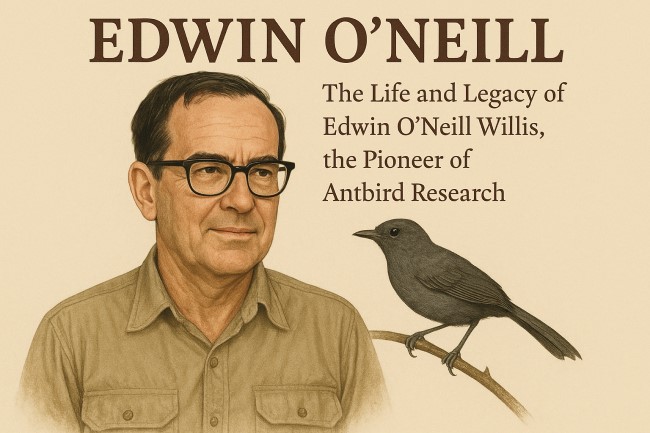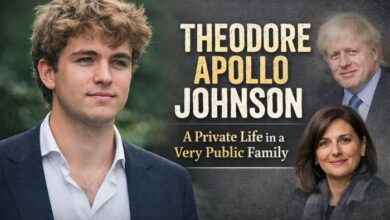Edwin O’Neill: The Life and Legacy of Edwin O’Neill Willis, the Pioneer of Antbird Research

Introduction to Edwin O’Neill
Few names in the field of ornithology command as much respect as Edwin O’Neill, particularly when referring to Edwin O’Neill Willis, a pioneering figure whose contributions to avian behavioral science transformed how we understand bird ecology in the Neotropics. With a career spanning decades and continents, Edwin O’Neill Willis brought light to the fascinating world of ant-following birds, a subject previously underappreciated in ornithological circles.
This article offers an in-depth exploration of his life, career, and the enduring mark he left on the scientific world. It also highlights the importance of his research, his partnerships, and the legacy that continues to impact ornithology today.
Early Life and Academic Background
Childhood and Origins
Edwin O’Neill Willis was born on January 18, 1935, in Russellville, Alabama, United States. From an early age, he demonstrated a strong fascination with nature and wildlife, particularly birds. This curiosity would later blossom into a groundbreaking scientific career that spanned multiple decades and nations.
Education and Research Interests
He completed his undergraduate studies at Virginia Tech in 1956, earning a degree in biology. Later, he pursued a Master’s degree at Louisiana State University, where he began studying the behaviors of ant-tanagers, a precursor to his future focus on ant-following birds. He then completed his Ph.D. in Zoology at the University of California, Berkeley, in 1964.
His academic foundation laid the groundwork for a life dedicated to detailed field research, especially in the rich ecosystems of South America.
Career Milestones and Scientific Contributions
Postdoctoral and Museum Work
Following his doctoral studies, Edwin O’Neill engaged in postdoctoral research at the American Museum of Natural History, furthering his skills in field observation, taxonomy, and behavioral ecology. His scientific rigor and unique research perspective quickly earned him respect among peers.
Move to Brazil
In the early 1980s, Edwin O’Neill moved to Brazil, a decision that would solidify his legacy. He joined São Paulo State University in Rio Claro in 1982, where he taught and conducted research until 2005. His relocation allowed him intimate and long-term access to the Amazon Rainforest and the Atlantic Forest, two of the most biodiverse regions on the planet.
Pioneering Work on Ant-Following Birds
Understanding Army Ant Ecology
Willis’s most recognized work involved studying ant-following birds—species that follow swarming army ants to catch the insects and other small animals flushed out by the ants. He meticulously documented how these birds interact with their environment, how they avoid direct competition, and how they form complex mixed-species flocks.
Key Discoveries
His work revealed several critical insights:
-
The hierarchical structure within mixed flocks
-
The roles and niches of different bird species in tropical ecosystems
-
The dependence of certain species on army ants for food
These discoveries not only advanced academic understanding but also underscored the delicate balance within tropical food chains.
Collaborative Work with Yoshika Oniki
A Scientific Partnership
Edwin O’Neill shared much of his scientific journey with his wife, Yoshika Oniki, a distinguished ornithologist in her own right. Together, they published over 300 scientific papers and books, many of which are still cited in modern research.
Shared Vision
Their collaborative efforts highlighted a joint passion for conservation, fieldwork, and education. They were known for enduring long and challenging field conditions, often spending months at a time in remote forest regions to gather data.
Honors and Recognitions
Species Named After Him
Due to his significant contributions, several species were named in his honor:
-
Willis’s Antbird (Cercomacroides laeta)
-
Genus Willisornis, a group of specialized antbirds
These names reflect the deep respect and admiration the ornithological community has for his work.
Academic and Global Impact
Edwin O’Neill mentored countless students and young scientists, many of whom have gone on to have impactful careers. His influence reached beyond Brazil, shaping ornithological research across the globe. His data continues to serve as a foundational reference in tropical ecology studies.
Retirement and Death
After retiring in 2005, Edwin O’Neill continued contributing to research in a consulting and editorial capacity. He passed away on April 11, 2015, in Rio Claro, the city that had become both his home and his primary research base. His death was a significant loss to the scientific community, but his legacy lives on through the knowledge he left behind.
The Relevance of Edwin O’Neill’s Work Today
Conservation and Ecology
As concerns about deforestation and climate change grow, Edwin O’Neill’s work is more relevant than ever. His observations provide a critical baseline for comparing past and present bird populations, offering clues to how environmental changes affect species interactions and biodiversity.
Methodological Influence
Modern ornithologists and ecologists still use techniques pioneered or refined by O’Neill, especially in avian behavior studies, flock dynamics, and field-based research in dense tropical habitats.
Related Keywords and Research Topics
In addition to the main keyword “edwin o’neill”, it’s important to recognize the significance of related terms that strengthen the search and context of his legacy:
Edwin O’Neill Willis
-
The full name often appears in academic and scientific texts, especially when citing published work.
-
Searches related to ant-following birds, Willisornis, and army ant ecology often link back to his legacy.
Antbird Ecology
-
A field he helped define.
-
Often associated with neotropical biodiversity, behavioral ecology, and avian evolution.
Conclusion
Edwin O’Neill, particularly known as Edwin O’Neill Willis, was a pioneer in the field of tropical ornithology. His lifetime of work studying ant-following birds, his countless publications, and his collaborative spirit left an indelible mark on the scientific world. By understanding complex bird behaviors in their natural habitat, he contributed invaluable insights to the world of ecology, behavior, and conservation.
His life story is not just that of a bird expert but of a man deeply committed to understanding the delicate balance of life in one of the world’s most intricate ecosystems. His legacy will continue to inspire future generations of researchers for years to come.



